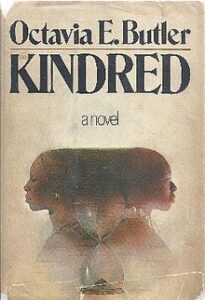
*Disclaimer: this review is spoiler-free.*
The writer/director duo Gerard Bush and Christopher Renz released their new feature-length horror film, “Antebellum,” this past Friday. Featuring a star-studded cast including Janelle Monáe, Kiersey Clemons, Gabourey Sidibe and Jena Malone, the movie was expected to be well-received and thought-provoking.
However, that is not how the majority of critics rated “Antebellum.”
After the trailer debuted in November, it was hinted that “Antebellum” may have been just another slave narrative. It is quite clear that most Black people are tired of the slave narrative and are more interested in other genres, such as romance, sci-fi and coming of age.
In a review written by culture writer David Sims for The Atlantic, Sims begins with his disdain for the film by profoundly summarizing the plot.
“The film’s arresting premise was laid out in its stark, effective advertising: What if a modern-day Black American woke up one morning to find herself on a Civil War-era slave plantation? That’s what happens to Eden (played by Janelle Monáe), though the movie opens on her life in captivity and takes a while to reveal its contemporary twist,” Sims wrote.
From the same producers as “Get Out,” “Antebellum” had a preconceived expectation of being another cinematic masterpiece that intertwines satire, social commentary and American racism. Although “Antebellum” does address many racial atrocities from different angles, it unfortunately did an excellent job at dehumanizing Black people in the process, like most slave narratives. What seems ill at first, quickly escalates into a more elaborate, evil scheme that opens a new theme into the film — a twisting exploitation.
The movie was allegedly modeled similarly to Octavia Butler’s 1979 novel “Kindred.” However, “Antebellum” featured mostly extreme moments of brutality without the psychology of enslavement as depicted in Butler’s novel.

Overall, the film felt like a glorification of the power structure that rich, white people have over Black people. The concept of white people fulfilling their sadistic fantasies of owning slaves on a plantation did not need a nearly two-hour film, especially with the various elements of trauma porn that is common in slave narratives. My longing wish for the film would have been more character development of the enslaved Black people on the plantation, since Eden’s character had the only memorable backstory.
Monáe has executed her roles in films like “Moonlight” and “Hidden Figures” so passionately and easily leaves her audience with attachment toward her character, and she undeniably played this role in “Antebellum” as Eden/Veronica well. However, I am also very tired of films centering on slaves and Black torture porn, and therefore, I would not recommend immediately rushing to see this movie. If you are still interested in watching “Antebellum,” it is available on premium video-on-demand services including Amazon Prime, Vudu and FandangoNow, for $19.99.